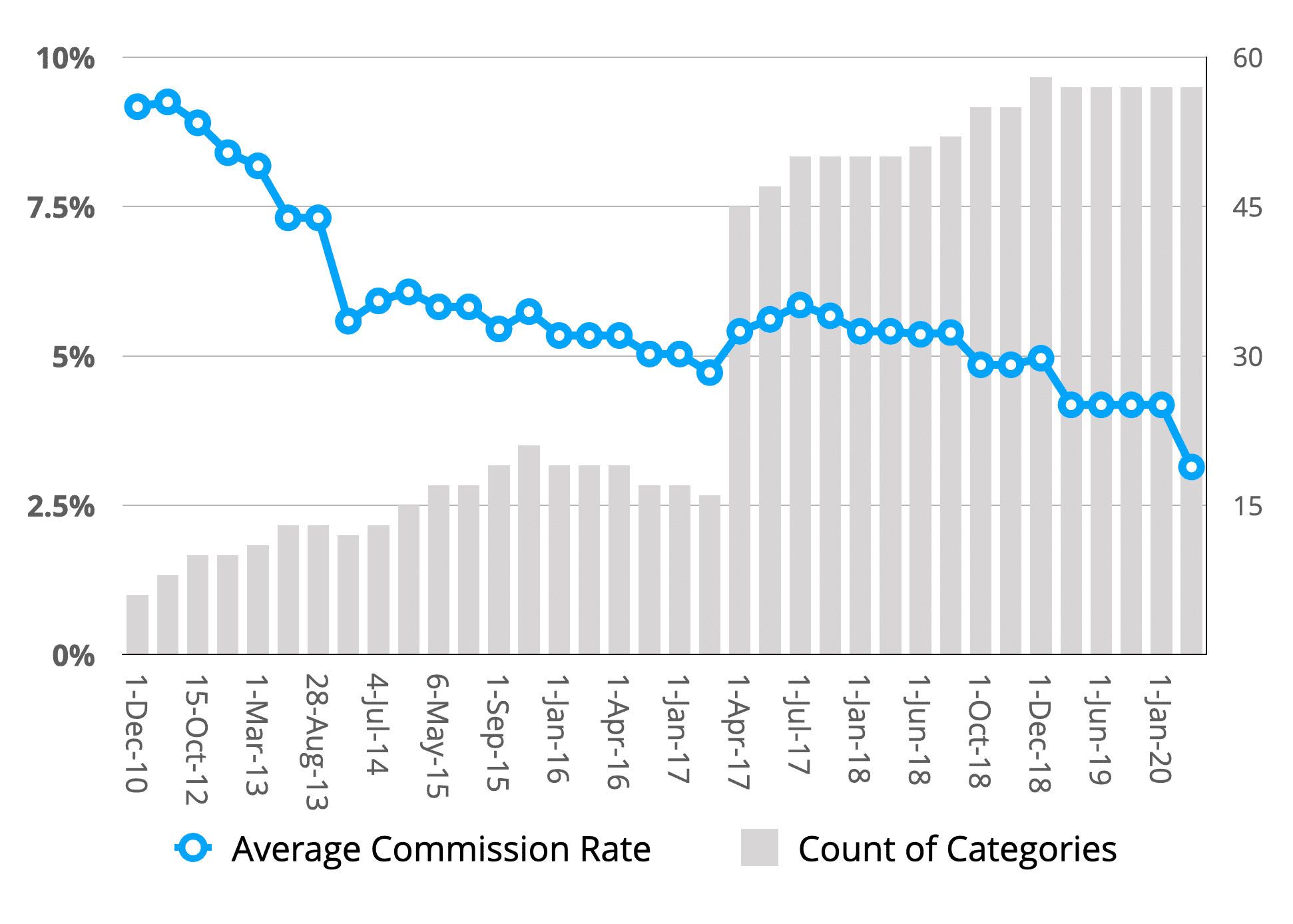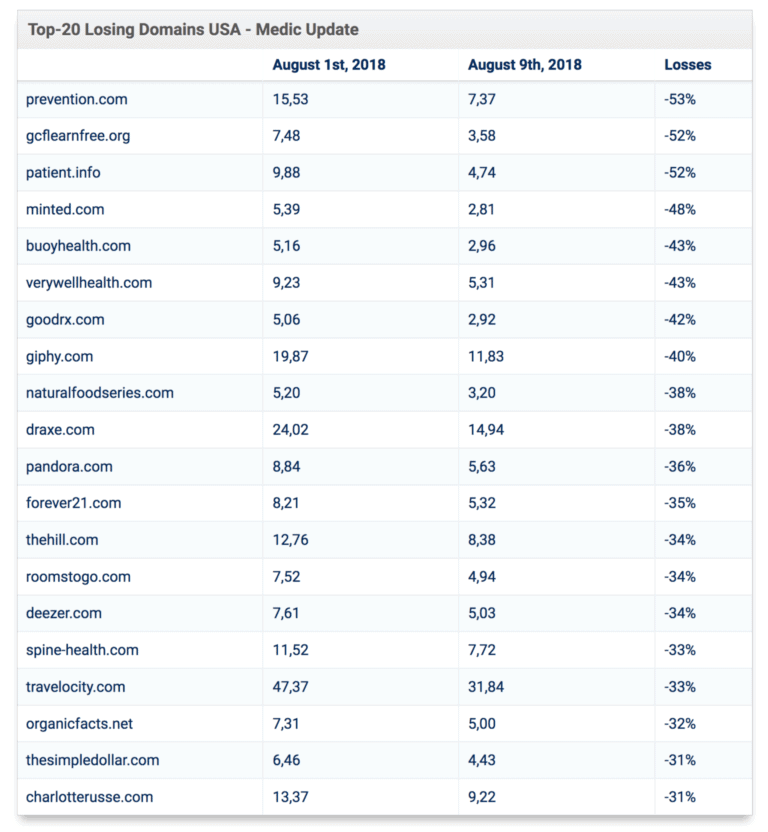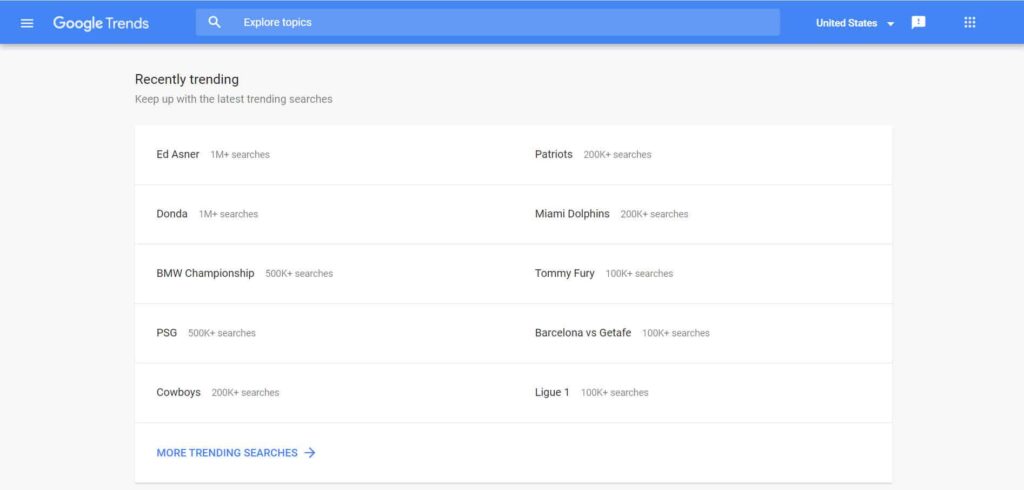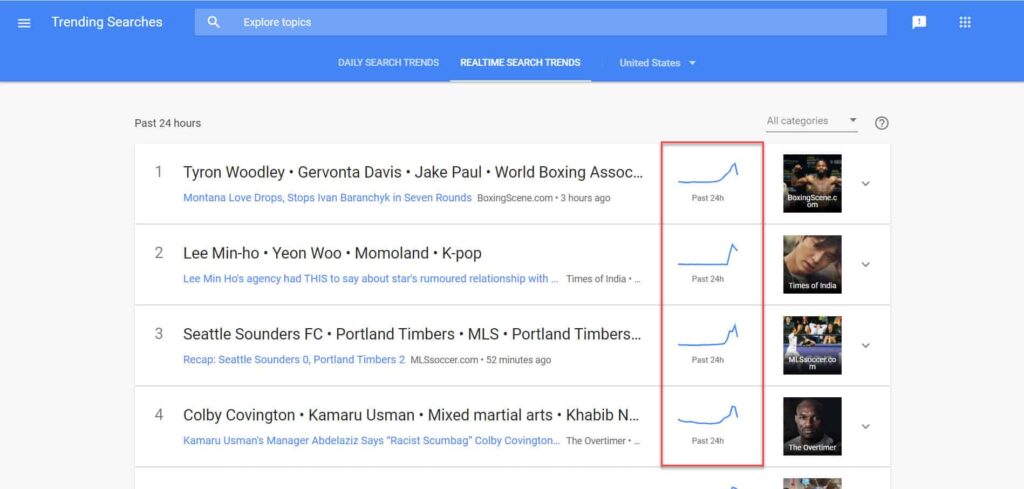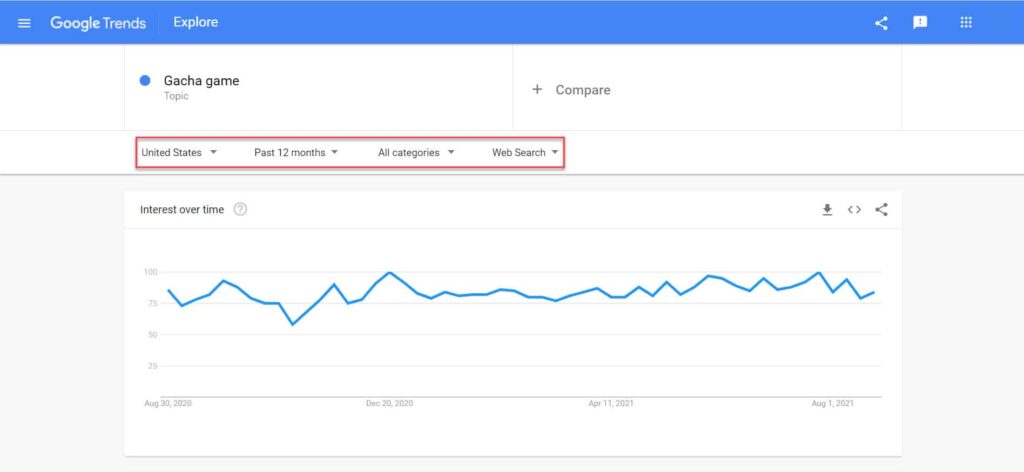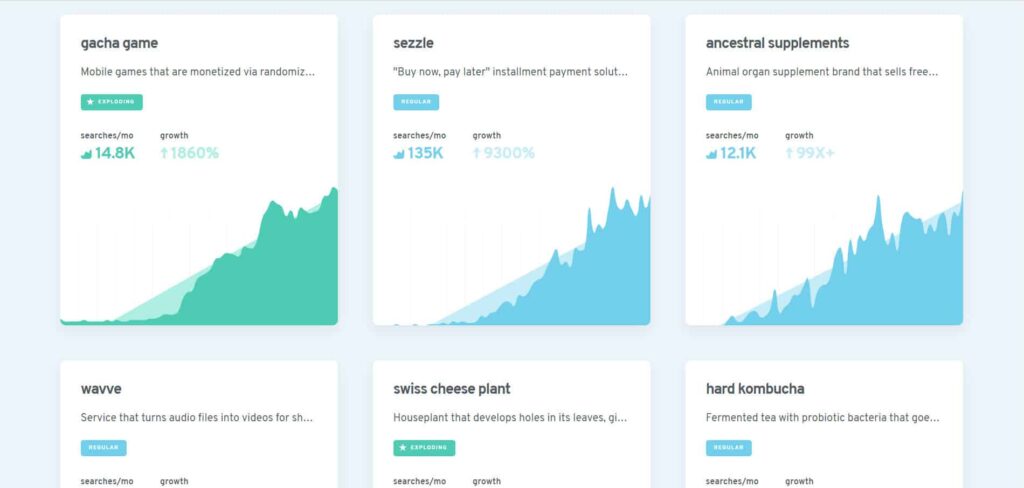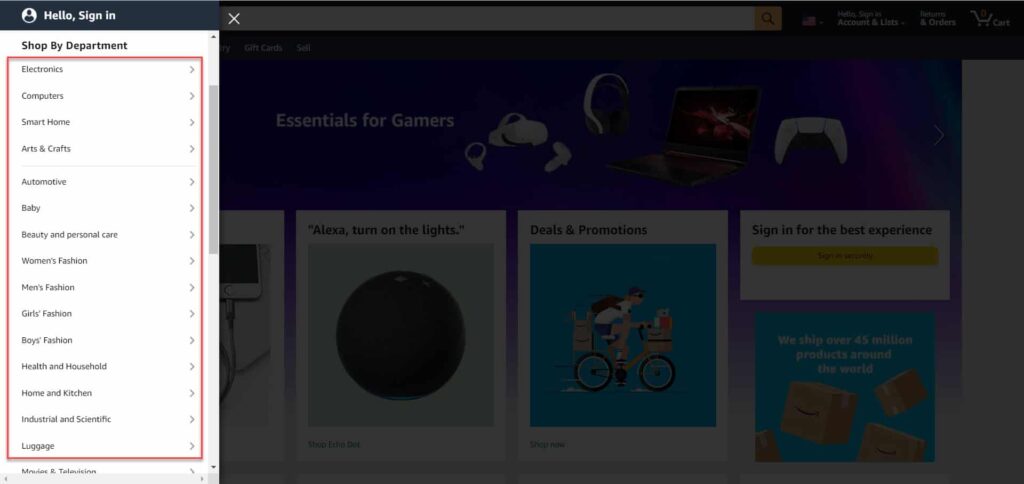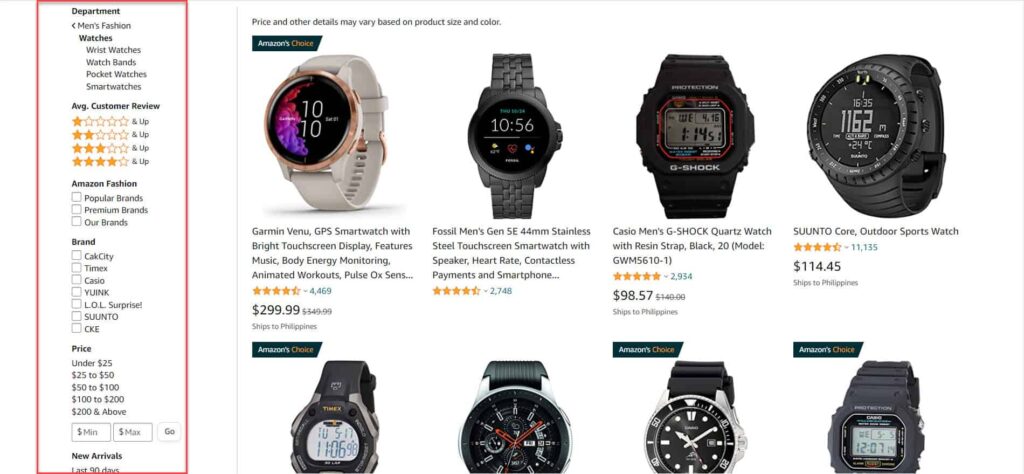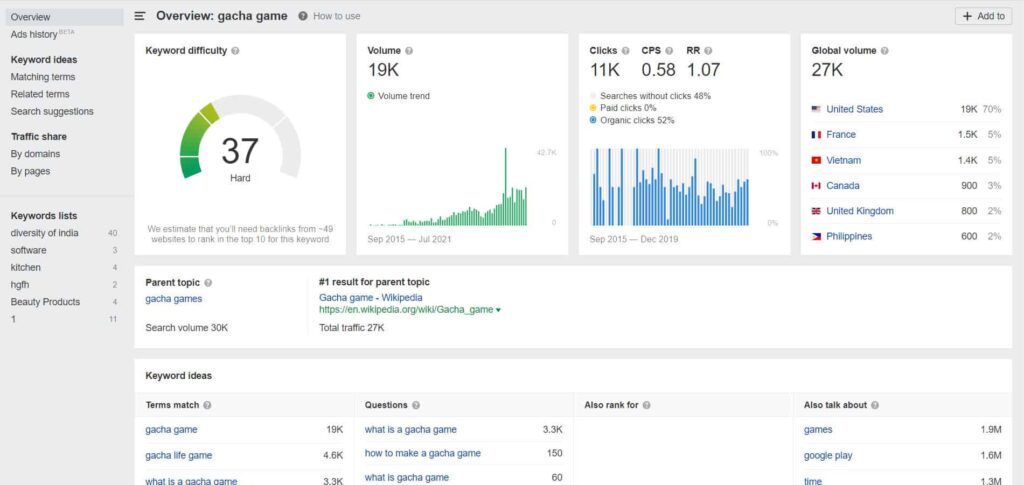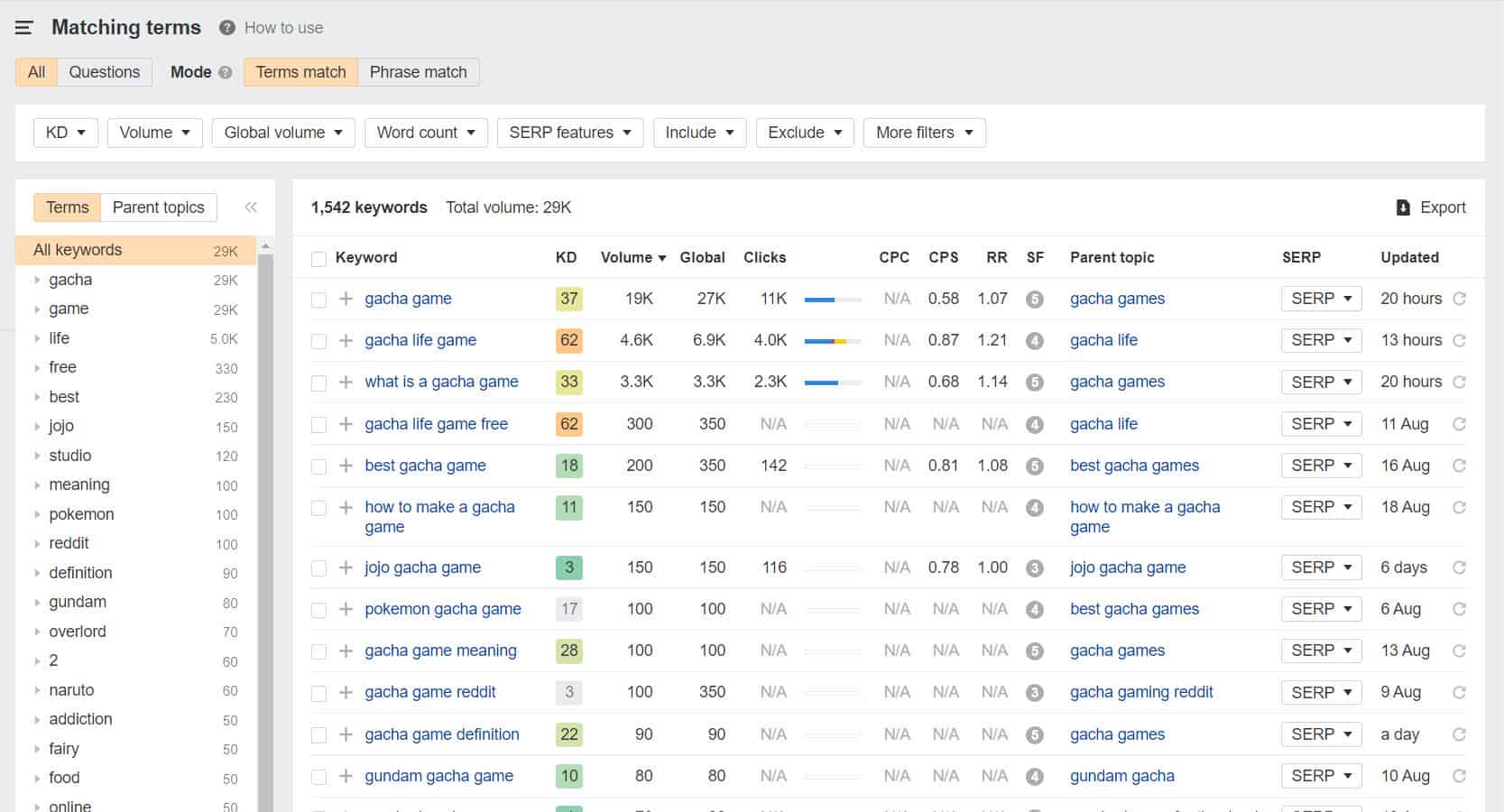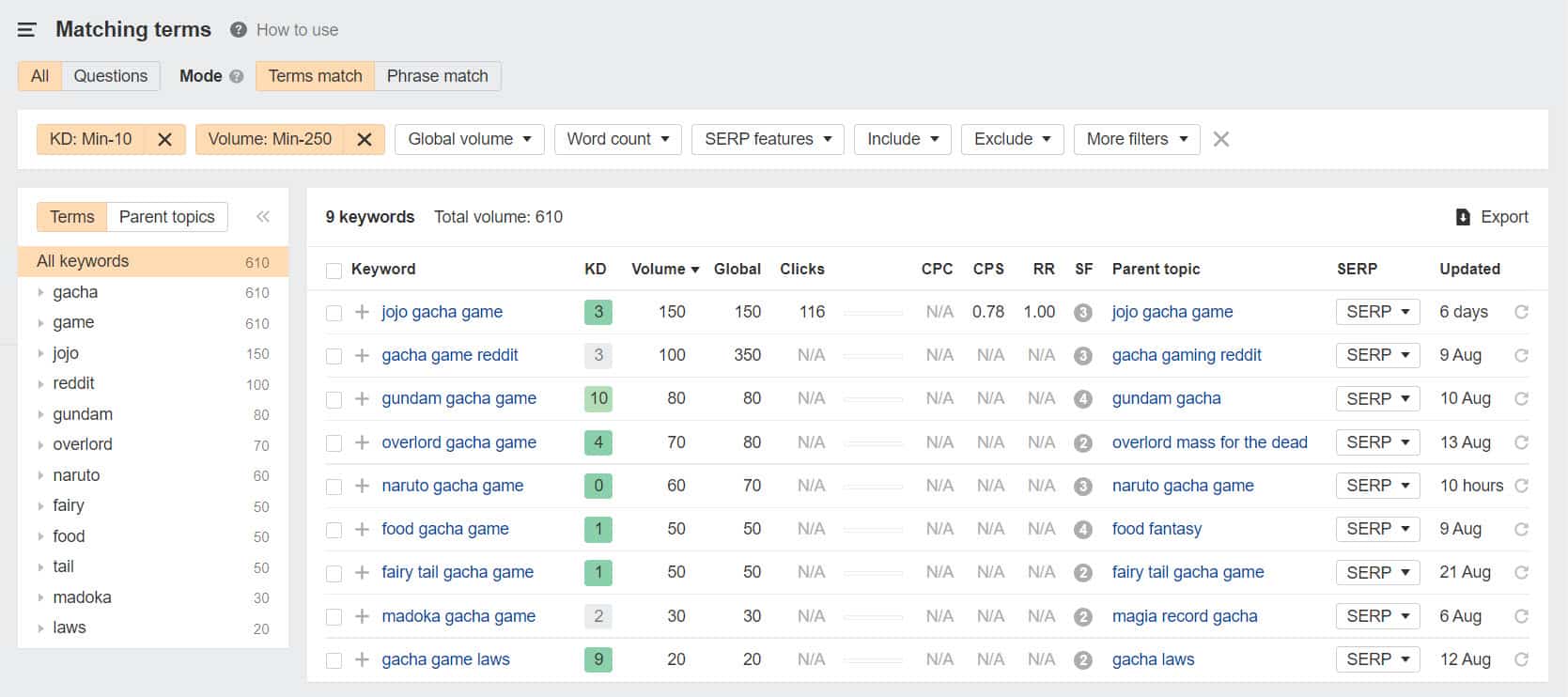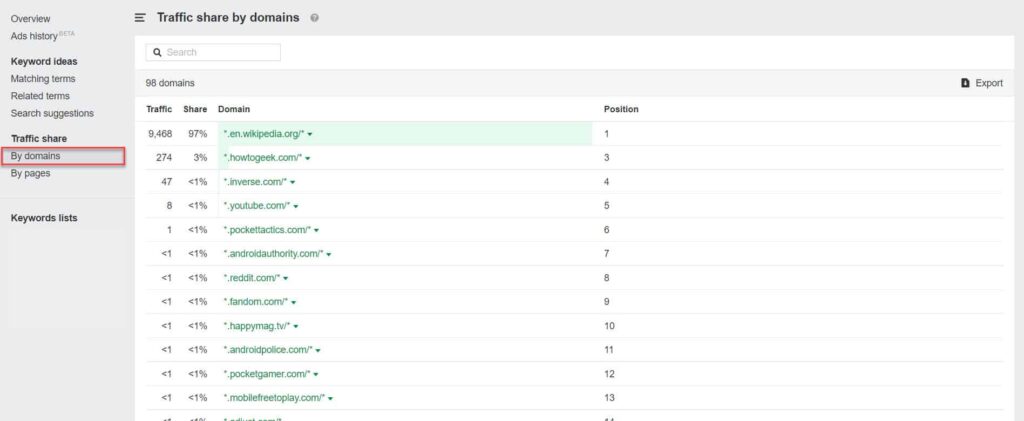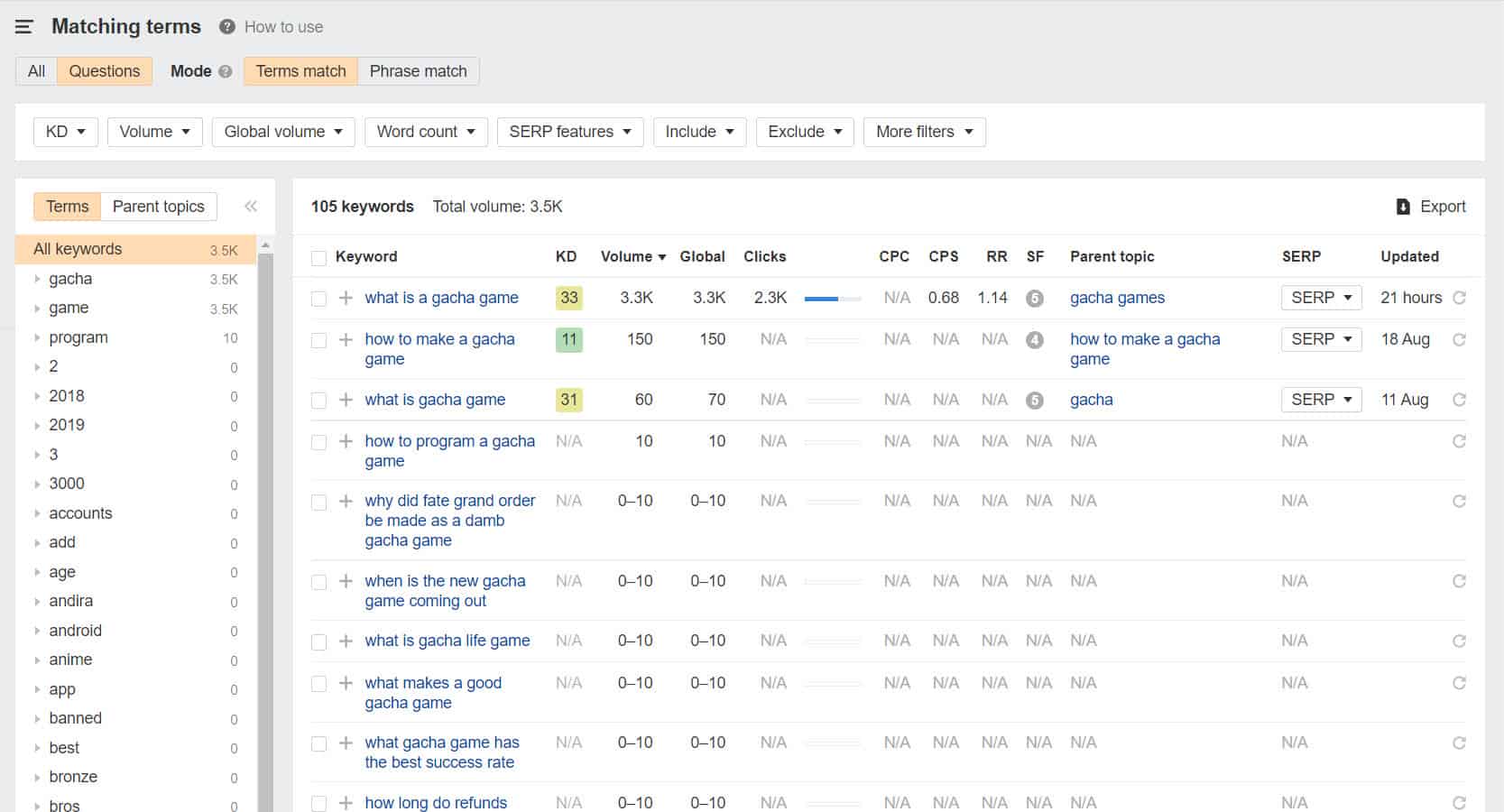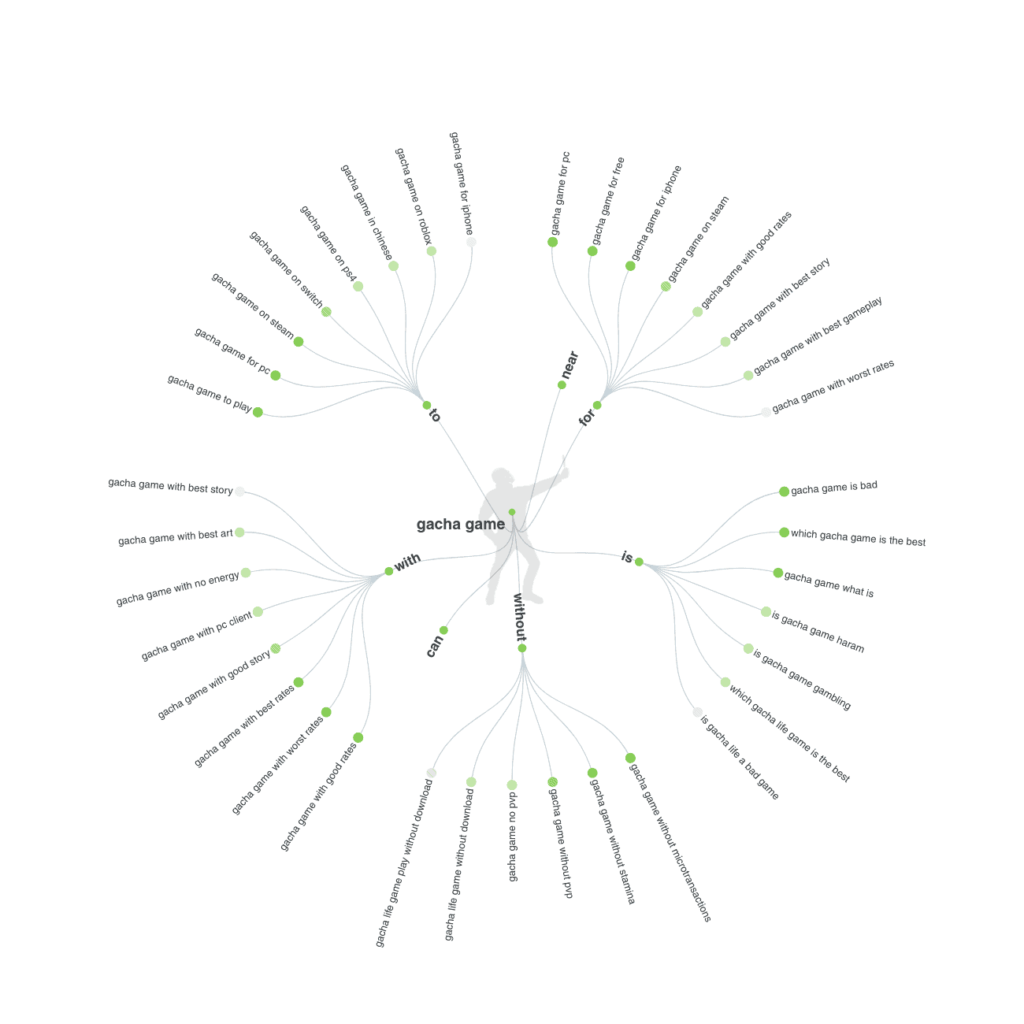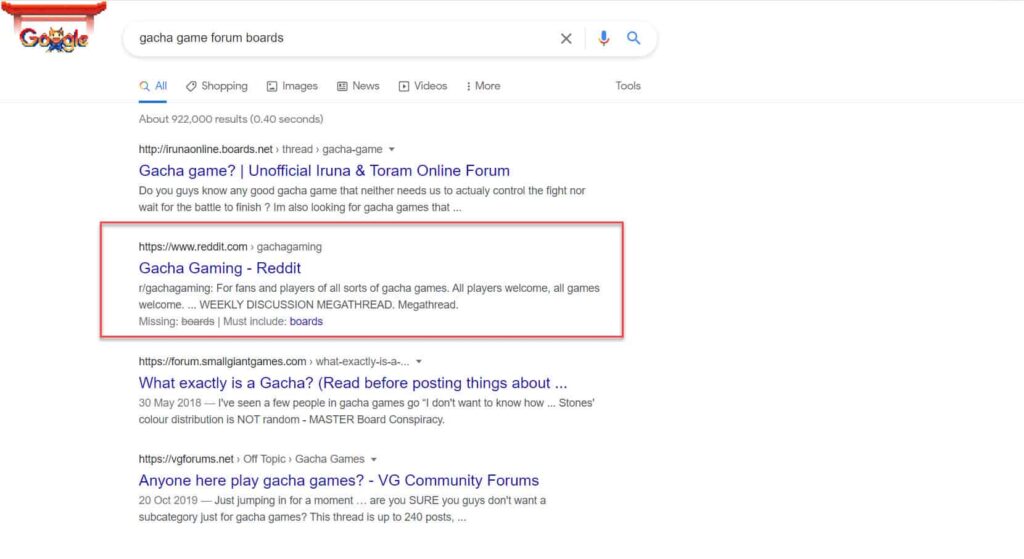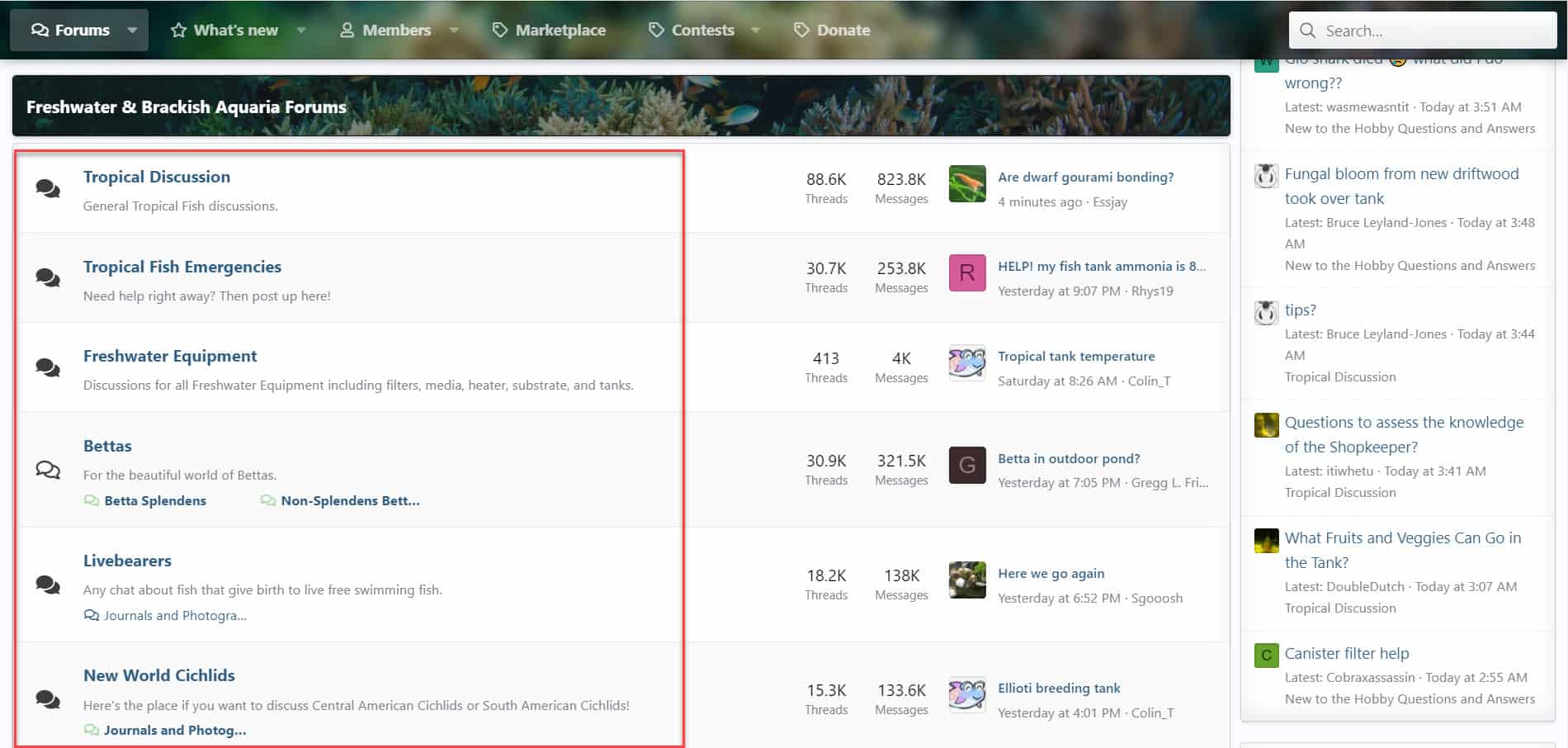As the saying goes, the riches are in the niches.
It doesn’t matter how good you are at affiliate marketing. You won’t be able to generate sustainable and profitable income if you chose the wrong niche for your website.
Therefore, this post will show you, as aspiring affiliate marketer, the step-by-step process of niche research to brainstorm for ideas and vet them. Using this process, you should be able to find niches that will help you make money online in the long run.
What Makes for a Great Niche in Affiliate Marketing?
Before anything else, let’s first look at what constitutes a “great” niche for your affiliate site.
Ideally, you want a niche where you can make as much commission earnings with your authority site in the shortest possible time. There are various factors to consider that will help you narrow down your search and find this great niche:
Low Competition
The biggest variable that determines the earnings capacity of a niche site is how much search traffic it is getting over a period. The more traffic it generates, the higher the chance is to convert visitors into buyers.
Among the various traffic sources to choose from, expect search engine optimization (SEO) to be the best source from the get-go. The goal is to optimize your web pages for their respective target keywords so they can rank on top of search engine page results (SERPs).
The biggest obstacle ahead of you that’s preventing you from ranking on top of Google search is your competitors. It will be very difficult to compete against websites with established authorities in their niches and have deep pockets to develop SEO strategies and execute their campaigns.
Therefore, if you want to take the first place of organic results, you need to look for niches in which the top sites aren’t very authoritative.
Below are some of the factors to help you determine if the websites in your target niche are low competition:
- They are set up a few months ago, so it’s safe to assume they have non-existent authority in the niche.
- Their content isn’t very good, i.e. grammatically incorrect, poor sentence construction, not optimized for keywords.
- Poor site UI/UX, i.e., loads slow, unintuitive web design, non-existent site structure, etc.
If the top sites in the niche meet these criteria, you have a good chance of leapfrogging over them on SERPs and grab the majority of the organic traffic.
Aside from reviewing them manually one by one, you can determine the difficulty of ranking for target keywords in this niche using keyword research tools.
Most of them feature a keyword difficulty (KD) score. The lower the score, the higher the chances of you ranking for that keyword in the SERPs by doing it better than your competitors.
Using these tools, you can find keyword ideas related to the niche and see their KD scores. While the score isn’t failproof metric and requires manual checking from you to verify the data’s accuracy, it nonetheless allows you to holistically determine how competitive a niche is based on the Keyword Difficulty scores of the keywords.
High Interest
Low competition in itself is an insufficient barometer for measuring how great a niche is. A possible reason that explains the low competition in some niches is due to low interest. In other words, the market isn’t interested in the niche.
You want a niche that people are searching for and talking about online. If the niche is at the tip of everybody’s tongue, you can ride the wave of its popularity and increase your site’s visibility and presence. As a result, you can drive more visits and conversions on your website for greater earnings.
However, since affiliate marketers are aware of this fact, most high-interest niches have high competition. As a result, it’s much harder to break through the market with your brand new site in this niche against well-established websites with deep pockets.
In this case, you need to strike a balance finding a niche with low competition and that people are interested in. This is the gold standard of affiliate niche marketing and there’s a very low chance you’ll stumble upon one in your research. However, you should at least strive to find the closest niche that meets this criteria.
Profitable Affiliate Programs
The online business model of affiliate marketing is pretty simple – you generate profit via commission earnings from affiliate sales. When site visitors click on your affiliate link and purchase the product or service, you earn a certain amount from every sale.
With this in mind, the products available in your chosen niche should have affiliate programs with high commission rates. This allows you to earn more from every single sale.
At the same time, consider the convenience that the platform offers. The commission rates might not be very high but you can still earn lots of money due to its high conversion rates.
Amazon is the perfect example of this. Through the years, Amazon Associates have consistently decreased its commission rates much to the chagrin of marketers.
Image Source: GeniusLink
However, the one thing keeping affiliate marketers on board with its affiliate program is the high conversion rates. Amazon is a big marketplace and have hundreds and thousands of products to offer, which means that a visitor may not even buy the product that they clicked on but they may end up buying something else resulting in commission for you.
Amazon Associates Program is a big deal for beginners who want to dip their toes into affiliate marketing without getting deep into the weeds just yet.
Just as important, the product or service you’re promoting on your niche site should be reliable and trustworthy. You can’t turn in a profit if you’re peddling substandard goods. Keep that in mind when choosing affiliate products to promote.
Passion or Profit
Another factor to consider when choosing a niche depends is your passion for the niche. Even if you have profitable niches at your fingertips, it probably won’t matter if you aren’t interested in them.
This is where the “passion vs. profit” question comes into play. Ultimately, there is no right or wrong answer here. However, consider that building affiliate sites take time and consistency for them to generate profit and flourish.
So, if you have no personal attachment to the niche site you’re working on, it’s much harder to constantly create high-quality content over a period without losing interest or getting stuck in a rut.
One Niche to Avoid at All Costs
In 2018, Google launched the Medic Update that penalized thousands sites in the medical niche, also known as Your Money Your Life (YMYL) sites. These sites provide information that puts the readers’ lives into the hands of the website. So, if a site contains erroneous information that could cause irreparable damage to the readers, Google de-ranked it during the update.
Also, if the site doesn’t have the proper credentials to verify itself as a credible source of information, Google devalued it as well. For example, Google views a medical site as a non-credible website when it has content written and fact-checked by people who aren’t medical professionals.
To help you paint a picture, here’s a list of sites that lost the most organic traffic after the update:
Image Source: Search Engine Land
All signs regarding the update point to Google putting more focus on a site’s expertise, authoritativeness, and trustworthiness. Also known as E-A-T, the acronym was first mentioned in Google’s Search Quality Guidelines. Although not considered as a ranking factor, they provide the working idea that a site needs to exhibit some form of authority for it to appear on search results.
Therefore, if you stumble upon a potential niche to work on but don’t have the credentials to pose yourself as an expert about the topic, there’s a high chance that you won’t be able to rank for this niche with your site. Either find some knowledgeable writers who know the niche inside out and use them as the face of your brand or skip that niche and move on to something else.
Niche Selection Process
Now that we have all these basics out of the way, it’s time to delve into the process of finding profitable niches.
What you want to do at this point is gather niches you can find that meet the prerequisite of being a niche that’s easy to rank for and people are interested in. Once you’ve listed them down, you must vet each one and determine your earnings potential from each niche based on the available affiliate programs.
You basically need to brainstorm niche ideas and then vet them before you could settle for a niche.
Gather Niche Ideas
As mentioned, you want to find niches that you think you can turn into authority sites and make a profit out of them. Here is how you can brainstorm affiliate niche ideas:
Check Trending Topics
For starters, you may want to find niches that people are interested in at the moment. Since there are lots of niches and industries out there, you want to focus on popular ones.
There are two tools you can use for this purpose. The first is Google Trends, a free tool that shows you the most popular terms and keywords that people are typing in on Google search.
Upon visiting the page, you can scroll it down to see trending topics daily and in real-time to help you cut down your research.
If you click on “More Trending Searches,” you will see other topics trending daily and in real-time to help you expand your research. Each term also shows a graph that shows a topic’s popularity within 24 hours.
If you have a niche keyword in mind, you can type it in the search bar to see interest in the topic over time. You can even customize the graph based on duration, country, and other variables.
This is vital because you want to see whether the interest has increased, decreased, or sustained. You want to take on fairly popular niches that have retained, if not increased, their popularity over the years. You may also refer to this guide on finding a niche using Google trends.
Another tool you can use is Exploding Topics. The goal of this tool is to help you find topics that are growing in interest and have yet to reach their peak.
The free version of the tool should help you get more than enough niche ideas. But if you’re looking to start multiple affiliate websites in different niches, the Pro version provides you with more niches and data to conduct your research.
Search for Products to Sell on Amazon
Another place to look for niche ideas is Amazon. The great thing about this online marketplace is they have a product for every conceivable niche or industry out there. It’s just a matter of finding out what those products are and how to find them.
It’s easy to conduct niche research on Amazon thanks to its site structure and navigation menu. Upon visiting the site, click on the burger icon to open the menu and see the available products on the site organized into categories.
Click on any of the categories to view subcategories under it and narrow down your search.
Once you’re on the category page, you can use the faceted navigation to show products that meet your needs and wants based on the filters you set.
You want to filter the results to products with at least an average of 4-star reviews. The rest of the filter settings is highly dependent on the niche you will be choosing. For example, some niches have products over $100 that sell very well, while the bestsellers of other niches price under $50.
At this point, you are already vetting the niches you plan on choosing based on the available products on the platform.
At the same time, you don’t have to join Amazon Associates to sell the products found here if you want higher commission rates. Some affiliate marketers reach out to manufacturers and strike a deal where they directly promote the products and get higher commission earnings directly from the manufacturer.
Find Low-Hanging Fruit Niches Using Keyword Research Tools
Since organic search will be your primary source of traffic, you want to check the competitiveness of a niche by using a keyword tool.
For this example, we’ll be looking at how you can conduct keyword research using Ahrefs. It is one of the most popular and best SEO tools due to the depth of its database and its advanced features.
Using the Keyword Explorer feature, type in your niche to see its keyword data.
What’s important here is the Keyword ideas part where you will see the different terms and keywords related to the topic you entered. Click on the “View all” link under “Terms match” to see.
On this screen, you can see the KD (keyword difficulty) and Search Volume in the first and second columns of the data. From here, you can find easy-to-rank-for keywords with substantial monthly searches. Thankfully, this is made easy if you use the filters to limit the results to your specifications.
For new sites, however, you can’t target keywords with thousands of monthly searches because you have to build your authority first before you can optimize for those high volume keywords
Therefore, by following Doug Cunnington’s Keyword Golden Ratio, you want to start by targeting keywords with a maximum search volume of 250. You can also filter the results to show keywords with a KD under 1o.
You can expand the results by filtering the results to a much higher KD. But the idea here is to find keywords with low KD so you can rank higher faster and build your authority quicker.
Another great thing about Ahrefs is it helps you find the top sites for the niche. These are websites that are ranking for the most keywords about the topic.
To see this, click on Traffic shares > By domains to check your potential competitors for this niche.
Ideally, you’d see other affiliate sites ranking on top of the list. But if you see authoritative sites that are not specific to the niche like Wikipedia and others, that means there’s more opportunity for you to grab the top organic spots.
Do this for all the niches you found. Then save niches with the most keywords that have low KD and relatively high search volume on your list.
Look for Questions You Must Answer in the Niche
For a niche site to become authoritative and trustworthy, you must be able to create valuable content that answers questions and provides solutions to its intended audience.
This way, you can establish your website as a go-to source about the topic. At the same time, you can also get into the good graces of Google and help your site rank for its target keywords.
But to know what questions to answer in a niche, you need to use different tools.
Ahrefs also lets you find questions that people ask on search engines. From the Keyword ideas section, click on “View all” under Questions.
On here, expect to see questions with a 0-10 search volume (terms that are searched between 0-10 times a month). This shouldn’t prevent you from creating content optimized for these keywords as long as they provide value to your audience.
Aside from Ahrefs, there are other free tools like Answer the Public that spit questions about your seed term.
Questions are categories under those with prepositions, comparisons, and are listed in alphabetical order.
Finally, Q&A sites like Quora help you round out the list of questions people search about the topic.
If you click on a question of a popular niche, you should see lots of followers and upvotes to it. Also, there are lots of answers from other users that you can use to help you create content to answer the question.
Forum and Discussion Boards
To help you round out your niche selection, search for popular forum boards about the topic using Google. Type “[niche] forum boards” or “[niche] discussion boards” to help you find the top ones.
You may find pages from forums about the topic. But what you want to look for are discussion boards dedicated to the niche. These will help you find important things to discuss about the topic that you can create pages for, on your website.
The good thing about forums is that subtopics are organized into categories. From here, you can even narrow down your broad niche into interesting sub-niches that you can create a website for.
Some forums features the number of threads, views, and messages in each subcategories. The more threads and messages in a subcategory, the more useful content you can create for your niche topic. And the more views it has, the higher the interest for that subniche is.
Vet Niche Ideas
At this point, you should have amassed potential niches that have high interest in the market and low competition in organic search. Next, you need to vet each one by finding out the possible affiliate networks you can join for each niche.
The type of products you’ll find in these networks determines which among the niches you found offer the best chances of earning revenue.
To start, search Google for affiliate programs dedicated for each niche. Type in “[niche] affiliate program” so you can see the available programs you can join. Replace [niche] with the niche market you’ve researched.
Another way to find affiliate products or services related to your niche is by signing up to different affiliate marketplaces. They serve up different products and services across various niches and industries, so you’re sure to find a bunch of good options to promote.
One thing you need to know before signing up to affiliate marketplaces is they will review your application first before you can choose which products and services to promote. If they find your application unsatisfactory because your site has no authority, you can’t promote any of their partner brands.
When scouring for niche products to promote on your affiliate website, here are some rules you must follow:
- Must be well-received by its users. Check for reviews first to confirm.
- High commission rates. Earn more from each sale of the product on your website.
- High-ticket item; the higher the cost, the greater your commission earnings will be.
- They do upsells. On top of the commission you’ll receive from the product, you can potentially earn even more if users purchase the upsells.
From here, list down all the potential products you can sell for each niche.
Wrapping It Up
Once you have the data at hand, you can finally choose which of your shortlisted niches is not only the most profitable niche but also one that you’re interested in pursuing.
Make sure that the niche is easy to rank for, has high interest in the market, has lots of questions (problems) you can solve with your content, and has ample affiliate programs.
From here, it’s all a matter of creating an affiliate website that will help solve the problems of your target audience by serving good quality valuable content.
Affiliate Marketing Niches FAQs
We’ve answered your common questions about finding the right affiliate marketing niche.
1. What Is the Biggest Obstacle to Finding Good Sources Using Search Engines?
The primary obstacle to discovering lucrative affiliate marketing opportunities through search engines is fierce competition. In highly saturated markets, numerous affiliates vie for the same audience and keywords, making it challenging for newcomers to gain visibility.
High competition often leads to high keyword difficulty and expensive paid advertising, further complicating organic search efforts. Established brands and authority sites dominate search results, and algorithm changes can unpredictably impact affiliate marketing success.
2. What Is an Affiliate Marketing Niche?
An affiliate marketing niche is a specific, focused area or topic within which affiliate marketers promote products or services. It helps affiliates target a particular audience with shared interests or needs.
3. What Are Evergreen Niches in Affiliate Marketing?
Evergreen niches are those with consistent, year-round demand. Examples include health, finance, and relationships. They tend to be more stable and offer long-term earning potential.
